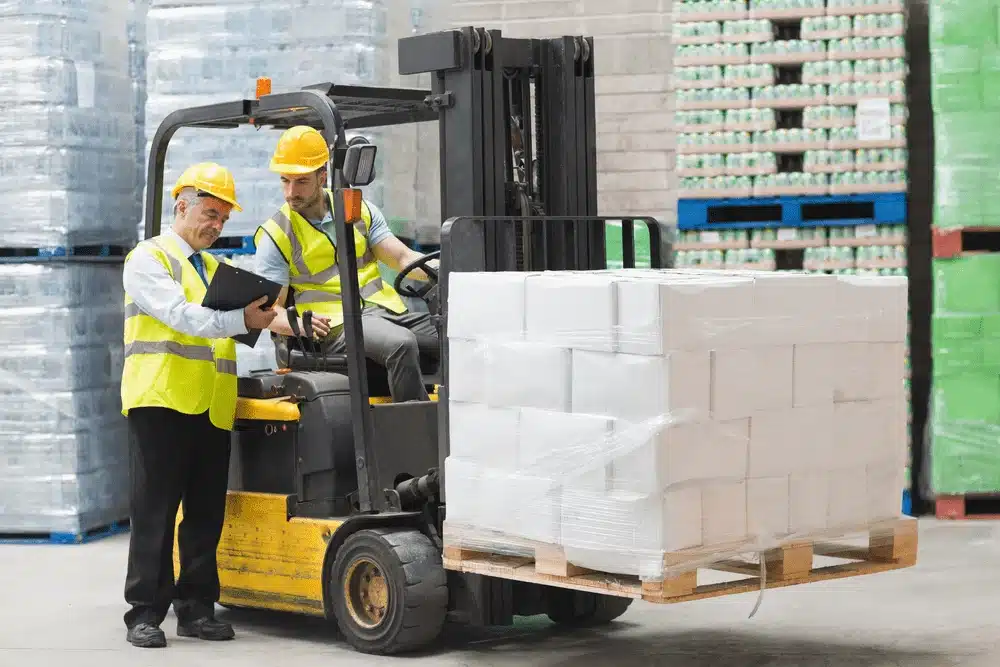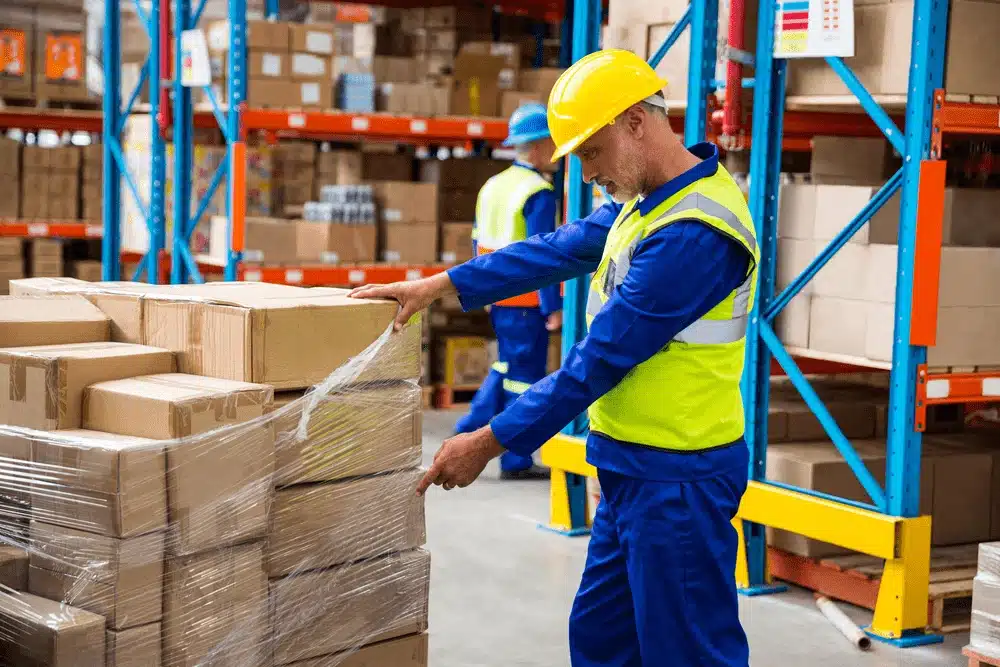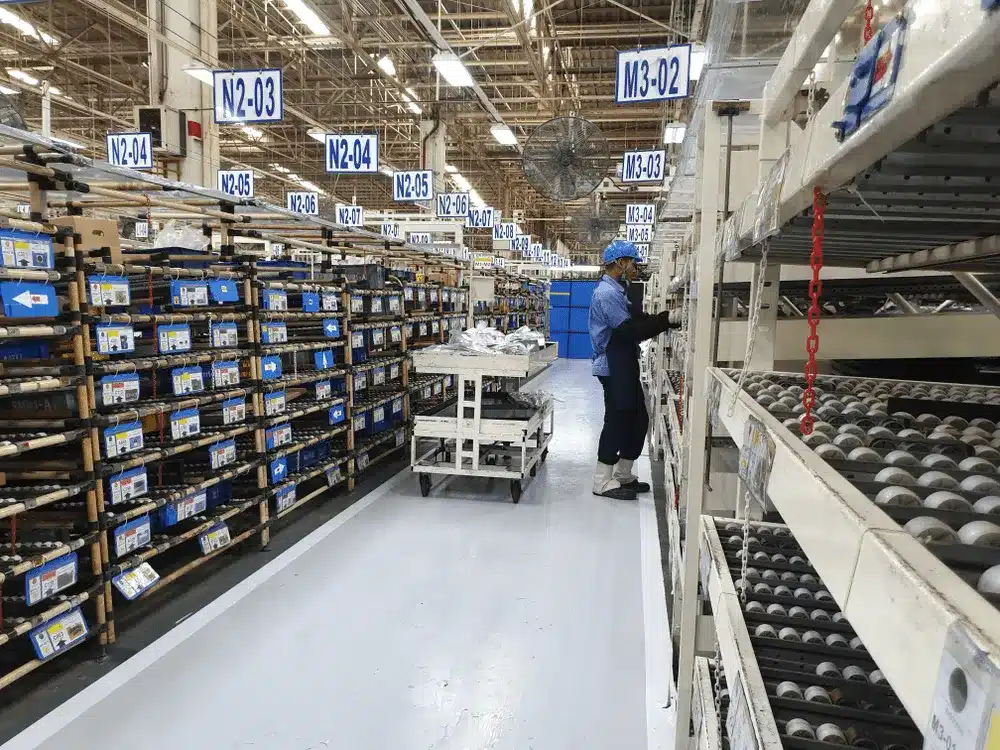
In the dynamic world of warehouse management, each role or warehouse job title plays a critical part in ensuring smooth and efficient operations. From the warehouse manager who oversees the entire operation to the forklift driver who moves and manages inventory daily, each position contributes to the overall success of the warehouse. This article aims to provide an in-depth understanding of various warehouse job titles, their roles, and responsibilities.
Warehouse Manager
At the helm of all warehouse operations is the Warehouse Manager. This role involves overseeing all activities, ensuring safety protocols are adhered to, productivity is maximized, and operations are efficient. The Warehouse Manager is responsible for strategic planning, staff management, and maintaining a high level of customer service. They also play a critical role in budget management, equipment maintenance, and ensuring compliance with industry regulations.
Warehouse Supervisor
The Warehouse Supervisor is a key figure in the daily operations of the warehouse. They coordinate activities, ensuring that operations run smoothly and efficiently. The Warehouse Supervisor is responsible for staff management, ensuring that all warehouse staff perform their duties effectively and adhere to safety regulations. They liaise with the Warehouse Manager to implement strategic plans and improve warehouse operations.
Lead Hand
Reporting to the Warehouse Supervisor, the Lead Hand plays a vital role in the warehouse team. They supervise other workers, ensuring all orders are filled correctly and timely. The Lead Hand also assists in training new staff and may help resolve any issues that arise during the shift. Their leadership and problem-solving skills are crucial in maintaining a productive and harmonious work environment.

Forklift Driver
The Forklift Driver, or Forklift Operator, is responsible for moving and managing inventory within the warehouse. This role requires skill and precision to ensure goods are handled safely and efficiently. Forklift Drivers also play a key role in loading and unloading shipments and organizing warehouse space for optimal efficiency. They need to be proficient in operating different types of forklifts and must adhere to safety regulations to prevent accidents.
Ready to Elevate Your Operations? Contact us Today!
Seeking a comprehensive software solution that effortlessly integrates warehousing, transportation, accounting, and beyond?
Request a DemoWarehouse Specialist
Warehouse Specialists are employees who have specific skills in areas such as receiving, shipping, or damage control. They perform specialized tasks that require a deep understanding of warehouse operations and procedures. Their expertise contributes to the overall efficiency and effectiveness of the warehouse. For example, a Warehouse Specialist in damage control would be responsible for inspecting goods for damage, documenting any issues, and ensuring damaged goods are handled appropriately.
Warehouse Clerk (Shipping and Receiving)
Clerks in shipping and receiving handle the receipt and shipment of products. They ensure that all incoming and outgoing shipments are correctly processed, documented, and organized. Their role is crucial in maintaining accurate inventory records and ensuring customer orders are fulfilled accurately and on time. They work closely with suppliers, transport companies, and internal teams to ensure a smooth flow of goods in and out of the warehouse.
Loader/Unloader
Loaders and Unloaders are responsible for moving items around the warehouse. They ensure that goods are safely loaded onto trucks for delivery and unloaded from trucks upon arrival. Their role is physically demanding and requires a good understanding of safe manual handling techniques. They also need to be familiar with the layout of the warehouse to ensure goods are placed in the correct locations.
Stocker
A Stocker’s role is to ensure warehouse shelves stay stocked and organized. They are responsible for placing goods in their correct location and ensuring that items are easily accessible for order pickers. Their role contributes to the overall efficiency of the warehouse and the accuracy of inventory records. They need to be detail-oriented and have a good understanding of inventory management practices.

Receiving Associate
Receiving Associates are responsible for receiving inventory as it’s moved in and out of the warehouse. They check incoming shipments for accuracy, document received goods, and ensure that all items are correctly stored in the warehouse. They work closely with suppliers and transport companies to resolve any issues with incoming shipments. They also play a role in inventory management, updating inventory records as goods are received.
Package Handler
Package Handlers are responsible for packaging and labeling shipments as they prepare them for their final destination. They ensure that all items are securely packed and correctly labeled, contributing to the accuracy and efficiency of the shipping process. They need to be familiar with packaging guidelines and shipping regulations to ensure goods are packaged and labeled correctly.
Inspector
Inspectors play a crucial role in maintaining the quality of products leaving the warehouse. They inspect products for defects or damage, ensuring that only items that meet the company’s quality standards are shipped to customers. They also ensure that all warehouse procedures and policies are followed. They need to have a keen eye for detail and a good understanding of quality control practices.
Inventory Clerk
Inventory Clerks are responsible for keeping track of inventory using warehouse management software, a critical part of inventory control. They update inventory records, track incoming and outgoing shipments, and assist in conducting physical inventory counts. Their role is crucial in maintaining accurate inventory records and preventing stock discrepancies. They need to be detail-oriented and proficient in using inventory management and/or warehouse management software.
Material Handler
Material Handlers ensure the warehouse infrastructure is working correctly. They are responsible for the safe and efficient movement of materials within the warehouse, contributing to the overall flow of operations. They need to be familiar with the warehouse layout and handling equipment and must adhere to safety regulations to prevent accidents.

Order Picker
Order Pickers are responsible for selecting products to ship from the shelves. They play a crucial role in fulfilling customer orders accurately and efficiently, contributing to customer satisfaction and the overall success of the warehouse. They need to be familiar with the warehouse layout and inventory system to quickly locate and pick items. They also need to be detail-oriented to ensure the correct items are picked and any discrepancies are quickly resolved.
Delivery Driver
Delivery Drivers are responsible for delivering warehouse inventory to its next or final destination. They ensure that all shipments are delivered on time and in good condition, providing a crucial link between the warehouse and the customer. They need to be familiar with delivery routes and have excellent driving skills. They also need to be proficient in handling paperwork related to deliveries and have good customer service skills to interact with customers during delivery.
Assembly Laborer
Assembly Laborers perform work that requires little to no warehouse experience. They may be responsible for assembling products, packing boxes, or performing other simple tasks. Despite the entry-level nature of this role, Assembly Laborers play a crucial part in the overall operation of the warehouse. They need to be able to follow instructions accurately and work efficiently to meet production targets.
Marketer
Marketers in a warehouse setting are responsible for making personnel aware of sales, coupon offers, promotions, and news. They play a crucial role in promoting the warehouse’s products and services, contributing to sales and customer engagement. They need to have good communication skills and a good understanding of marketing strategies and techniques.
Packaging Specialist
Packaging Specialists are responsible for packing products that need to be shipped out, a key part of the packing and shipping process. They ensure that all items are securely packed and correctly labeled, contributing to the accuracy and efficiency of the shipping process. They need to be familiar with packaging guidelines and have good attention to detail to ensure items are packed correctly.
Warehouse Management System Analyst
A Warehouse Management System Analyst is an expert in using a warehouse management system correctly. They are responsible for managing the system, troubleshooting issues, and training other staff members on its use. Their role is crucial in ensuring the smooth operation of the warehouse management system. They need to have good technical skills and a deep understanding of the warehouse management system being used.

Warehouse Safety Supervisor (OSHA)
The Warehouse Safety Supervisor oversees the safety of all employees. They ensure that all safety protocols are followed and that the warehouse complies with OSHA regulations. Their role is crucial in maintaining a safe working environment for all staff. They need to be familiar with safety regulations and have good leadership skills to enforce safety protocols and address any safety issues.
Warehouse Security Supervisor
The Warehouse Security Supervisor oversees the security of all warehouse assets. They are responsible for implementing security measures, monitoring security systems, and responding to security incidents. Their role is crucial in protecting the warehouse’s assets and maintaining a secure working environment. They need to be familiar with security systems and have good problem-solving skills to address any security issues.
Other Warehouse Roles

Executive level roles, such as the Warehouse Director or Chief Operations Officer, provide strategic direction for the warehouse. They make high-level decisions, set goals, and ensure the warehouse aligns with the overall business strategy.
Administrative staff handle the day-to-day administrative tasks of the warehouse. They manage paperwork, answer phone calls, and perform other clerical duties that keep the warehouse running smoothly.
The Sales Team plays a crucial role in driving revenue for the warehouse. They work closely with customers, understand their needs, and provide solutions that meet those needs. They also maintain relationships with existing customers and seek out new business opportunities.
Accounting personnel manage the financial aspects of the warehouse. They handle invoicing, payroll, budgeting, and financial reporting. Their role is crucial in ensuring the financial health of the warehouse.
Human Resources staff are responsible for hiring, training, and managing the welfare of warehouse employees. They ensure that the warehouse is staffed with competent personnel and that employees are well taken care of.
The Marketing Team is responsible for promoting the warehouse’s products and services, contributing to sales and customer engagement. They create and manage marketing campaigns, handle social media, and ensure that the warehouse maintains a strong presence in the market.
It’s important to note that not all warehouses will have separate roles for all of these positions. In smaller operations, some of these roles may be combined or handled by a single individual. Regardless of the structure, each of these roles plays a crucial part in supporting the warehouse operations and ensuring its success.
The Role of Technology in Streamlining Warehouse Job Titles
In today’s digital age, technology plays a significant role in streamlining various warehouse positions and overall warehouse management. A robust Warehouse Management System (WMS) like Argos’ ABECAS can automate many tasks, provide real-time data, and streamline operations. This allows managers to focus more on strategic tasks such as planning and process improvement. It also enhances the roles of various warehouse positions, enabling them to work more efficiently and effectively.
Conclusion
Understanding the various warehouse worker titles and their roles is crucial in optimizing warehouse operations. Each role contributes to the overall success of the warehouse, and understanding these roles can help in strategic planning and decision-making. With the aid of technology, these roles can be further enhanced, leading to more efficient and effective warehouse operations.
Take the first step towards optimizing your warehouse operations. Explore how Argos can transform your warehouse operations and help you manage your team more effectively. Contact us today to learn more or schedule a demo. Our team of experts is ready to help you achieve your warehouse management goals.




